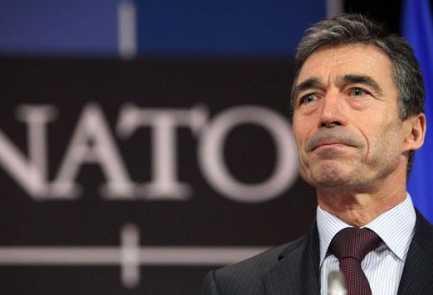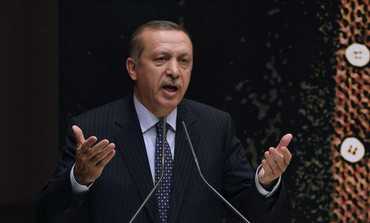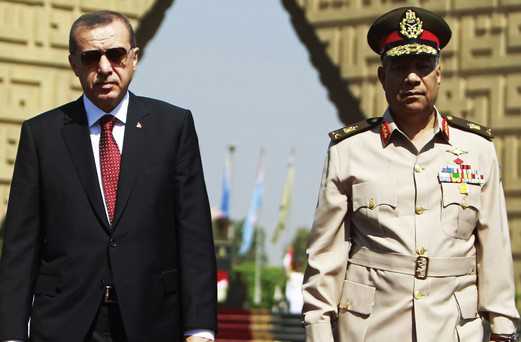Despite Israel’s apology, Turkey not normalizing ties
NATO planned to invite foreign ministers from Mediterranean countries, including Israel and six Arab states, but Turkey nixes Israeli participation • Erdoğan: Turkey will not send an envoy to Tel Aviv before Israel lifts its naval blockade on the Gaza Strip.
Eli Leon and Israel Hayom Staff

NATO Secretary-General Anders Fogh Rasmussen. | Photo credit: AP
Despite the Israeli apology for the 2010 Mavi Marmara incident, Turkey said it objects to meeting Israeli diplomats at the upcoming Mediterranean Dialogue group, in which Israel was supposed to have participated for the first time since 2008.
In addition, Turkey’s Prime Minister Recep Tayyip Erdoğan said on Saturday that Turkey will not send an envoy to Israel as part of a recent move for normalization of ties before Israel lifts its naval blockade on the Gaza Strip.
Erdoğan reiterated Turkey’s stance on the issue and said Israel should lift the blockade before full restoration of diplomatic ties, Turkish newspaper Sunday Zaman reported.
According to the Turkish daily Hurriyet, Anders Fogh Rasmussen, the 12th and current secretary-general of NATO, planned to invite the foreign ministers from Mediterranean countries, including from Israel and six Arab states, but Turkey has objected, arguing that “it wasn’t the right time” for such a meeting.
“The general-secretary was planning to invite the foreign ministers of the Mediterranean Dialogue countries on the sidelines of the NATO foreign ministers meeting scheduled for April 23 but Turkey objected to the idea,” a Western diplomatic source told Hürriyet on the condition of anonymity.
A Turkish official told Hurriyet that “at this stage, such a meeting would not be useful.”
According to the newspaper, the official also said that Egypt and Tunisia, two members of the Mediterranean Dialogue, did not want to hold such meeting at this stage either.
NATO’s Mediterranean Dialogue was initiated in 1994 by the North Atlantic Council. It currently involves seven non-NATO countries in the Mediterranean region: Algeria, Egypt, Israel, Jordan, Mauritania, Morocco and Tunisia.
According to Hurriyet, Turkey has been having a tough time normalizing relations with Israel since the relatives of slain Turkish activists still appear defiant about continuing their lawsuits against senior Israeli officials, with one even declaring that he would hand his compensation money from Israel to Hamas and Islamic Jihad. The dropping of legal cases against Israeli officials was one of the core conditions that Israel demanded from Turkey as part of the apology deal.
via Israel Hayom | Despite Israel’s apology, Turkey not normalizing ties.






